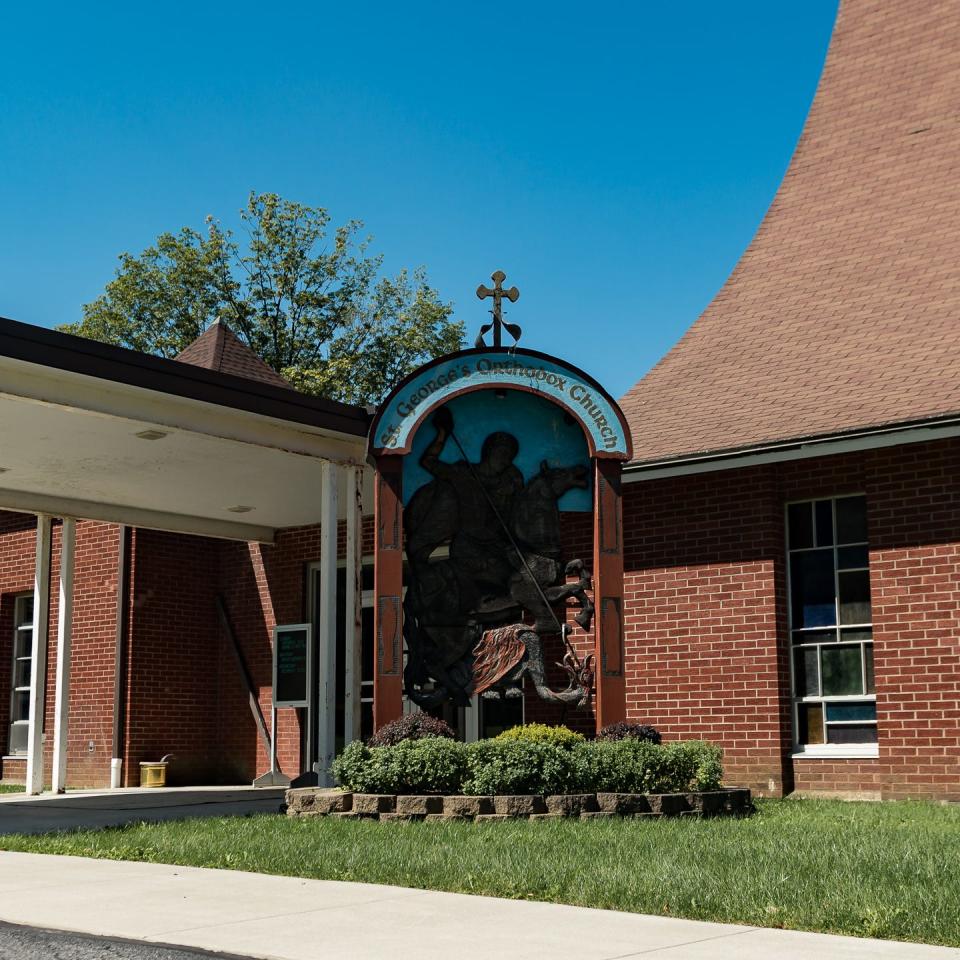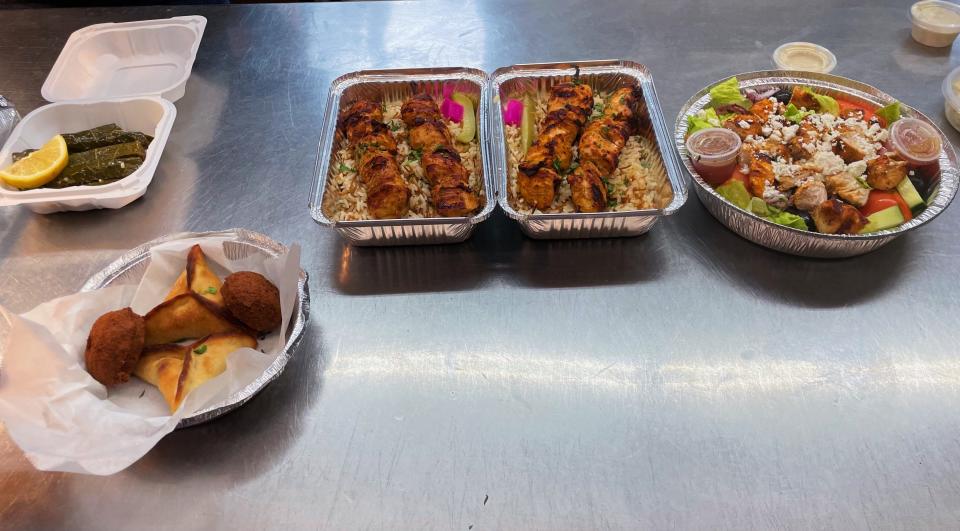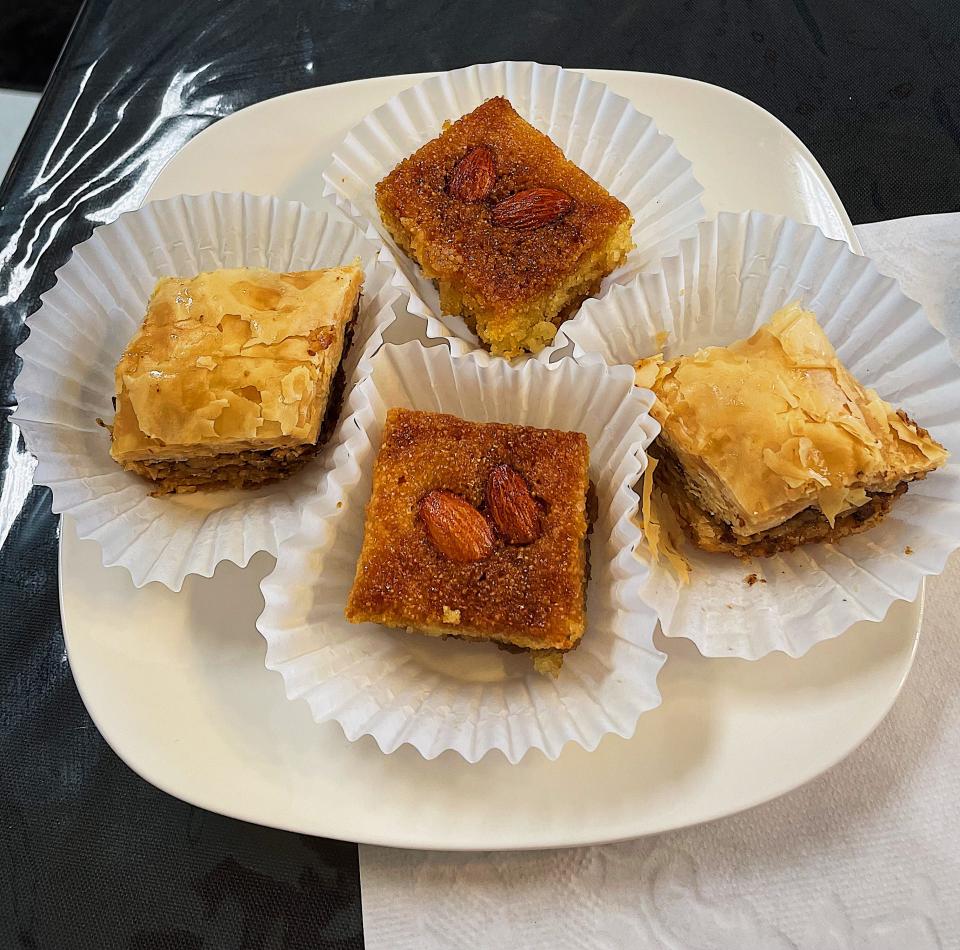St. George Mediterranean Festival celebrates culture that spans centuries, continents
For the Rev. George Goodge, the pastor of St. George Antiochian Orthodox Church in New Hartford, Thanksgiving isn’t Thanksgiving without a big plate of grape leaves.

He described growing up in Allentown, Pennsylvania surrounded by the Syrian side of his family and a larger Syrian community. The food that he ate throughout his childhood helped him feel connected to his ancestry.
“When I think back even now, when my wife cooks Syrian food, it takes me back to being a boy in the midst of my brothers, my cousins, my aunts and uncles,” Goodge said. “We would all get together, and we would have this food, and it was part of what made us who we were as a family and as part of a larger community there in Allentown, and now here in Utica. It harkens back to where we were, to the same flavors we would get from overseas.”
St. George, a parish founded by Lebanese and Greek immigrants in the early 1900s, will be hosting its 12th annual Mediterranean festival from noon to 8 p.m. on Saturday, Sept. 9, and Sunday, Sept. 10.
The festival is a celebration of culture that will include raffles, music, Arabic dancing, and plenty of food.
St. George’s congregation is made up of congregants from a variety of backgrounds: Lebanese, Greek, Syrian, Russian, Romanian and more.
“It's a kind of melting pot with a lot of tradition,” festival chairperson Cindy Nimey said.

The church always donates a portion of the festival’s proceeds to a charity or nonprofit; this year, the donations will go towards earthquake relief efforts in the Middle East.
A 7.8 magnitude earthquake struck Turkey and Syria in February, and Nimey said the church wants to offer its continued support to the victims.
What's on the menu?
Parishioners such as Kaother Nono and Karam Wassel, who own the Mediterranean restaurant Mariam in Whitesboro, have been preparing food for the festival for the past three months. They’ve been cooking right in St. George’s kitchen and freezing dishes which will then be cooked onsite.
The menu will include traditional dishes such as falafel, shawarma, stuffed grape leaves, and more.
Guests with a sweet tooth also are in for a special treat.
“We have our famous baklava ice cream sundaes, which are irresistible,” Nimey said.
The sundaes take the Mediterranean delicacy made of flaky phyllo dough, ground nuts, and honey-sweet syrup and top it with ice cream, chocolate sauce, and whipped cream.
Nimey said that past attendees are already messaging her on Facebook and clamoring for more.

Centuries of tradition
Nono and Wassel are part of a three-generation Syrian family that has lived in Utica for over 30 years (although the couple themselves moved here with their children eight years ago). Various family members have been involved with the Mediterranean festival since it began in 2011.
The couple’s nephew Rafi Wassel, who is in medical school but also helps run Mariam, said that his family has deep roots in the Middle East that go back millennia.
The food that they make arose out of early agriculture in the area, when his ancestors cultivated wheat, grapes, eggplant, and more. The cuisine also grew out of the cultural exchange in that cradle of civilization.
“We have been in that area which almost used to be in the center of the Old World,” Wassel said. “A lot of people came into the area and introduced their food to us, and we introduced our food to them, so that's why we have a huge collection of what kinds of food we do in the area.”
Rev. Goodge also spoke of his cultural link to the Old World.
“It's these places that connect me, here in America, somebody who was born and raised on the east coast of the United States, to these lands overseas that most of the time we only have just read of in the Bible, or in bad news coming from over there,” he said. “I have this connection across an ocean, across culture and across time to these ancient, ancient lands.”
Nimey wants community members who attend the festival to experience Mediterranean culture and walk away with full bellies.
“Our purpose is to share our culture, our food, and for everyone to learn a little about our church and why we're here,” Nimey said. “And the ultimate goal is for everyone to come and have a good time.”
This article originally appeared on Observer-Dispatch: Mediterranean festival celebration of food and culture

